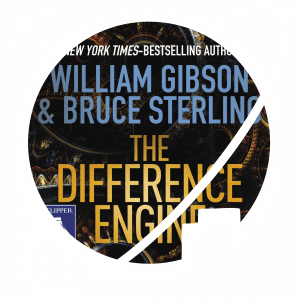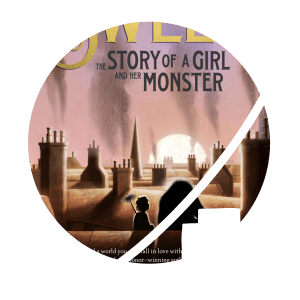- Novel written by Philip Reeve
- Published 16 November 2001
- Part 1 in the Mortal Engines Quartet


Listened to the audiobook with Barnaby Edwards – good narrator.
Probably the one thing about Mortal Engines that I will remember is the worldbuilding. Mortal Engines has a very interesting world that at once feels familiar and also takes a bit of time to wrap your head around. I think it must be the unexpected combination of tropes brought together from across settings: steampunk airships and aviators, dieselpunk wonder weapons, a post-apocalyptic wasteland with pre-apocalypse tech to be found and brough back in use, and whatever setting Shrike belongs in.
And I haven’t even mentioned the main event: traction cities, metropolis-sized settlements on huge treads, trundling over the wasteland and hunting each other for fuel and spare parts. It’s absolutely bonkers and hugely evocative, and sure to stick with you long after you’ve put down the book.
That said, Mortal Engines is not about exploring or explaining the details and rather leans on the rule of cool, which in this case I can respect; there was never going to be a way to make traction cities actually feasible, but it would be a pity to ditch the idea because of that.
While the worldbuilding of Mortal Engines is great (if a bit rule-of-cool), I think the plot is somewhat mediocre. It is the kind of story where the plot happens to the protagonists (rather than the protagonists driving the plot) for the first three quarters of the book. The pace is high enough never for it to become boring, but it feels like the main characters are running through a series of interesting scenes and events just so Reeve can show them off.
That changes just in time for the novel’s finale. The protagonists actually stop running away and start influencing the plot, at which point they turn out to be surprisingly (and inexplicably) competent – which feels a little unearned, though it is satisfying.
Overall, the plot is what I would call basic: functional, but not original (and at time surprisingly intricate, not to say, convoluted).
Between the plot and the worldbuilding, there is little room left for the characters, and unsurprisingly, they don’t quite pop off the pages. This being a relatively straightforward adventure story with a focus on a whacky world, though, I can’t fault Reeve too much.
At the end of the day, Mortal Engines does more or less what you would expect from a simple adventure novel intended for younger readers, though it has a lot or original ideas in its worldbuilding.
An interesting little fact I learned about Mortal Engines is that it was apparently originally a much more ambitious adult novel, set in an alternate history (as opposed to the post-apocalypse), that was simplified and shortened to be more suitable for teens. That helps explain why there is so much going on in this book for how long it is. You can feel that ambition seeping out at the seams sometimes, though I am not sure that it is good or bad. It does make me wonder whether the cool ideas that went into the world would have stood up to a more serious plot.
We will never know, but the teen adventure novel in the wacky world of municipal Darwinism that we got is worth your time if you manage to suspend your disbelief on one tank-treaded city chasing down and eating another.














